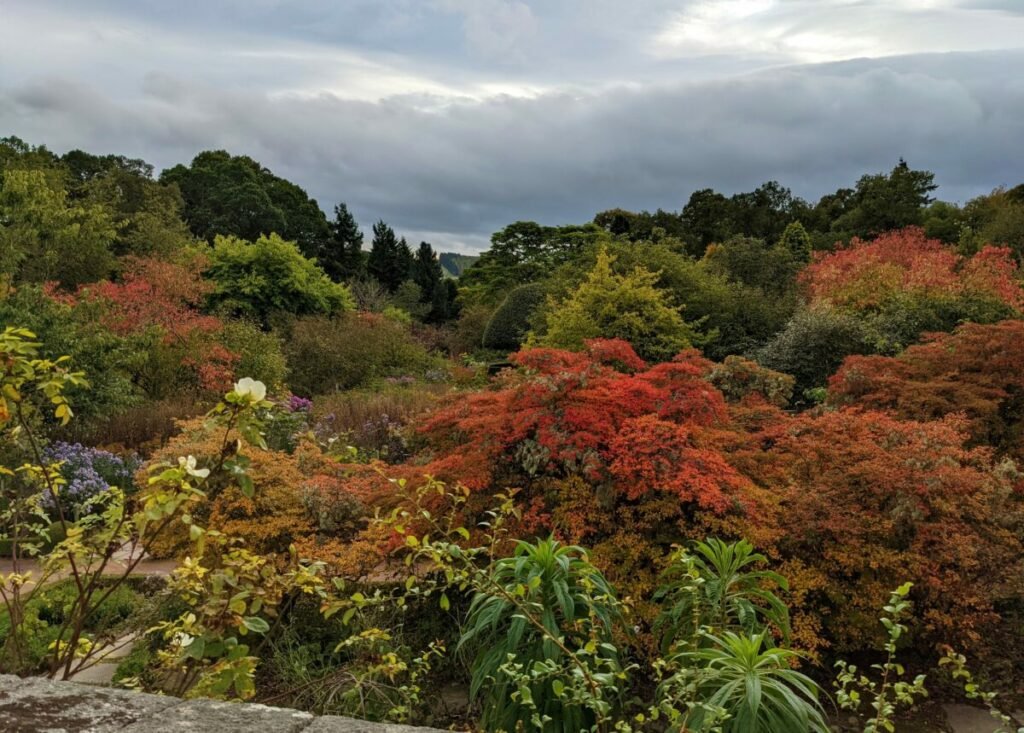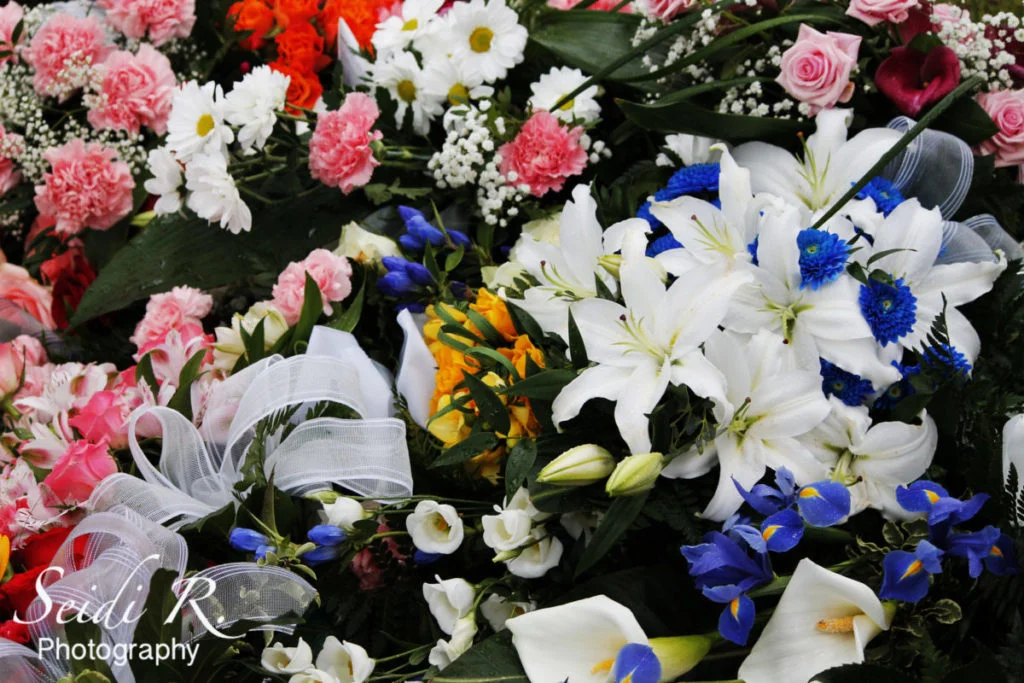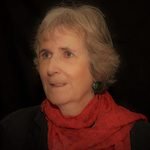My flight is booked. I’ll be with you at the hospital, and I’ll stay for your recovery when your kids go back to work. It’s been just a few days—plenty of time for the doctors to figure things out. We’ve been talking on screens for too long; I can’t wait to hug you!
And then our brother is on the phone, a strange urgency in his voice.
“She wants to see you; she needs to see you.”
“You told her I’m coming? I’ll be there in forty-eight hours. I’m on my way!”
“She wants to see you now.”
Suddenly your face hovers on my phone screen. Your voice is soft as you struggle to breathe.
“I have a lovely family, you know. I love you all. I love you, Liz. But it’s too soon. Just too soon . . .”
My mouth is dry with fear. You need me to acknowledge this new reality. And so I do.
“I love you. I’ll miss you so very much.”
You speak; I barely hear your words as they replace the oxygen mask.
And then our brother is back on the line, his voice strained, trying to sound cheerful.
“There are still options; I’ll keep you updated. We’ll see you soon.”
***
I should have been prepared. Yesterday, he sent a list of symptoms, gleaned from your specialist. Massive hilar lymphadenopathy. Lymphangitis carcinomatosis. Bilateral pleural effusions. I frantically search the Web. Our brother, a physician himself, has seen nothing like it. Cancer is eating you—an alien crab burrowing insidiously through your body. It makes no sense; it’s five days since I heard you were admitted. “No need for alarm at the moment.”
Two weeks before, with pandemic rules poised to ease, you bought your ticket to join us in Florida for Christmas. You were excited: “I’ve done the most important preparation—booked the dog into kennels!”
***
One flight down, I sit in JFK, waiting to cross the Atlantic, numbly checking my phone.
“Any news? How is she?”
“She’s comfortable and stable. We’ll be at the airport in Aberdeen and we’ll take you to see her right away.”
***
Eight hours later, at Heathrow, I feel the warm jolt from my airport coffee. Not too long before the flight to the north.
“Any news?”
There is. As I dozed fitfully over the ocean, you quietly drew your last breath. You were not alone.
A perky young woman, trim in a blue uniform, approaches.
“Do you have a few moments to answer a survey about your airport experience?”
“No. I do not. Please go away.”
You know I’m not usually a rude person.
***

Elizabeth Bird
I step off the plane in the small Scottish airport. Our brothers are there, familiar and comforting. Ten years apart, you and I between them. Together, they wrap me in love.
“We’ll get you checked into the hotel, and then you can see her.”
“See her? What do you mean?”
“You can visit her in the morgue, as long as the chaplain is with us.”
I know morgues from years of TV crime shows. Are you under a sheet on a table? Will they slide you out in a drawer? I don’t want to go!
But we drive to the hospital, where the chaplain walks us through a maze of pathways and corridors to find you.
You lie on a table disguised as a bed—comfortable, with pillows and blankets. Your broad, capable hands lie over the covers. A bruise where they pried the wedding ring from your swollen finger. You would want your daughters to have it. They have combed and arranged your hair—but not how you would have done it. I feel the urge to straighten it, and make you look right. This still figure looks like you, and yet it is not.
I am gripped with a sense of absurdity. This has gone on long enough; please just open your eyes, flash your toothy grin, and tell me it was all a joke. Your plot to get us all over those Covid hurdles for a grand family reunion!
But you lie cold and still, until we weep, say goodbye, and walk out with the kindly chaplain.
He ventures a few words of condolence in the name of Jesus. It’s his job, I suppose.
I cannot answer him in kind. I notice the name on his tag, and I know he is Nigerian. My work has taken me there often, and I start to prattle about the Niger river and the wonderful people I have met. Anything to avoid the inevitable conversation about Heaven, the afterlife, or the mysterious will of God.
***
I remember an evening just a few years ago. Our breath misting around us in a cold December, we step out of the warmth of a little English church, flushed from belting out those wonderful old hymns. “Oh come let us adore him, Oh come let us adore him. . . . The female voices start softly, joined robustly by the men, before melding in the final crescendo—“Christ the Lord!”
Our father, well past ninety, is glowing—joyful to have a daughter on each arm, a rare event in these days of living continents apart. As we head for the car, you turn to me:
“Nights like this, I almost wish I believed all this stuff. It could be comforting, I suppose.”
“I know what you mean. Not happening for me though. This is enough, isn’t?”
“Definitely! No harps for us—just living our best lives!”
And that you did.
We are united in our love for those old hymns, with their evocative words and stirring tunes. We sang them every morning at school assembly; they are distilled deep in our collective memory. Their resonance is family, not faith.
***
I can’t remember you ever being a believer. Never a proselytizing atheist, you were simply comfortable in your faith in the here and now, in humanity itself. And you lived accordingly.
I wobbled briefly in my early teens, going so far as confirmation into the Church of England. Our mother was not impressed, spurning my appeal for a white dress for the ceremony. She agreed to a practical beige blouse, adaptable to all occasions once I came to my senses.
I begged for a gold cross on a chain for my birthday, and one duly appeared—barely visible to the naked eye. It soon went the way of my brief spark of fidelity in a deity for whose existence I could see no tangible evidence. From then on, you and I were in synch; we rarely spoke about it, but happily accepted the absence of a judgmental god or a life after this one. Jesus will not be invited when we gather to remember you.
***
But in the days that follow, the well-meaning, godly platitudes flow thick and fast:
“You have to remember she’s in a better place.”
Well, no. The morgue and crematorium are definitely not better places. I’m sure you would agree.
“She led a full live and was gone so quickly—there’s much to be said for that.”
I doubt you’d care for that one either. I think you would have traded a slower end for more years hiking the hills, running 10Ks, and watching your little grandsons grow. Or meeting your first grand daughter, born on the other side of the world as the plague took hold. Or joining me in the next adventure we were planning.
“You know everything happens for a reason. You should take comfort in that.”
No, I should not. I have never discerned reason in the random anarchy of the universe.
***
Funny, isn’t it? The very authority that everyone invokes has an answer, found in the wise words of King Solomon. Right there in Ecclesiastes, perhaps the most problematic text for biblical interpreters: For the living know that they shall die, but the dead know not anything, neither have they any more a reward.
Pretty simple really. You die. It’s over.
***

I reflect on the last words you whispered to me.
“I’ll miss you too.”
But I know the truth, as did you. You will not miss me, because you are gone. You are not looking over me, although I feel your presence in my heart. You are not with your beloved, waiting for your children in the clouds. You are gone.
King Solomon continued: For the memory of the dead is forgotten.
There is wisdom there too. We will all be forgotten eventually—some faster than others. But just for now, he is wrong. You will surely be remembered by so many who loved you. You will finally dissolve only when the last of them is gone.
Meanwhile I will miss you, and I will remember you. I will miss you always. And then, when my time comes, I will not.

Share this post with your friends.


So very moving Liz, and so very honest too. Your sister would have been proud of this I’m sure. Love to you and your brothers xx
Thank you, Catherine!